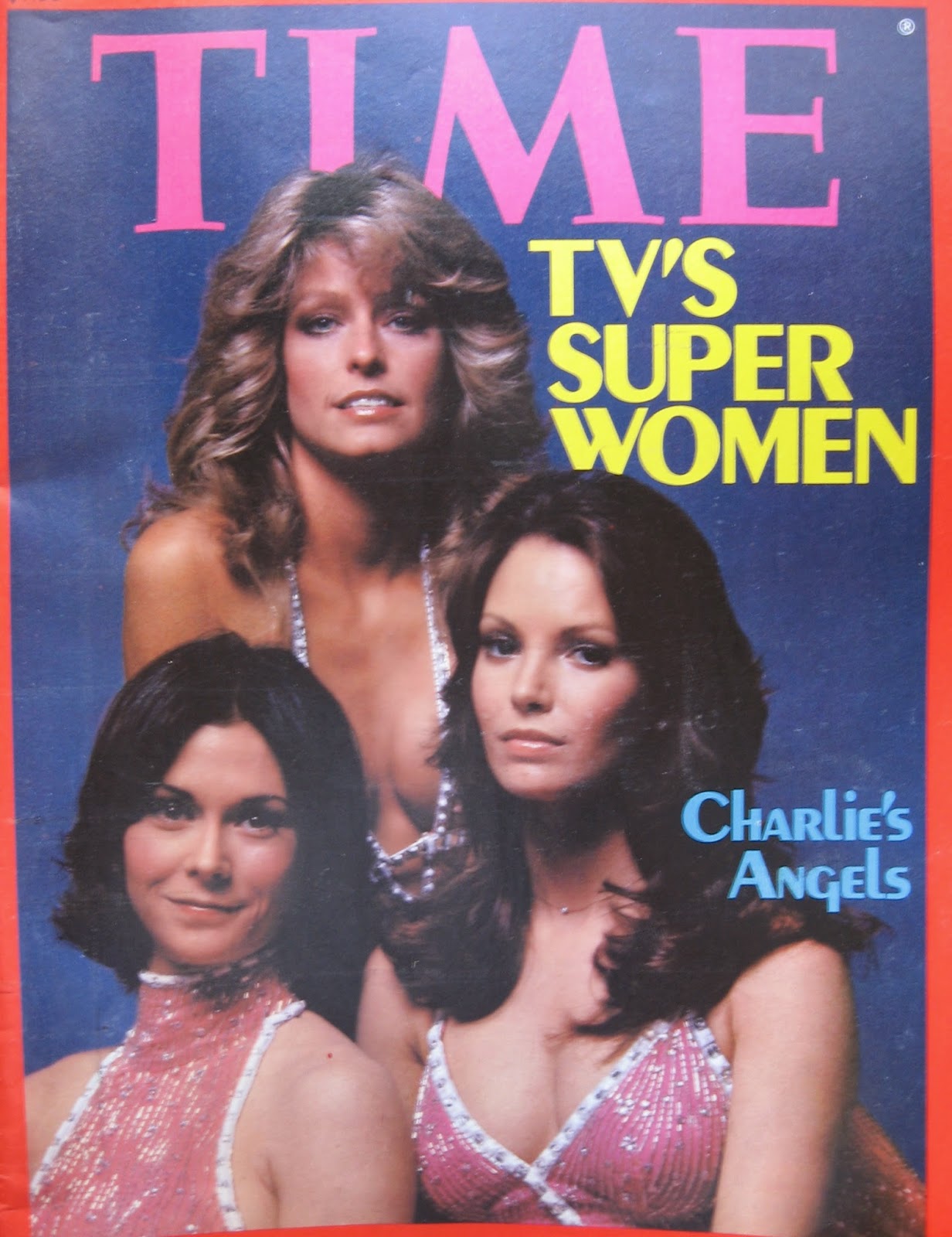When it came to solving crime on television, male-led shows like The Man from U.N.C.L.E. and I Spy dominated espionage and crime entertainment throughout the 1960s. Although women did have some important roles, they were mainly featured alongside men. Just over 40 years ago, on Sept. 22, 1976, Charlie’s Angels premiered. Its leads were three female heroines, portrayed by actresses Kate Jackson, Farrah Fawcett, and Jaclyn Smith, who left an impact on feminist pop culture.
Sabrina (Jackson), Jill (Fawcett), and Kelly (Smith) are three undercover investigators who work to solve crimes. In the first episode, we learn that the three heroines all graduated successfully from the police academy but work as a meter maid, office worker, and crossing guard. Sabrina, Jill, and Kelly are then recruited to work for Townsend Detective Agency. At the beginning of each episode, the three women are assigned a crime to solve by their boss, Charlie, a mysterious character depicted only as a disembodied voice communicating to the Angels through radio. This television series lasted for five seasons, but it started to decline in popularity during its last two years on air due to various casting changes.
Although the show demonstrates a team of three competent and capable women, the central driving force is male; however, in the context of the time period, the relationship between Charlie and his Angels demonstrates a significant amount of progress, as the three women were depicted as skilled and resourceful, and were put in charge of important missions. This depiction reflected women moving beyond secretarial jobs in the workforce during this time, although there was still a power dynamic between male bosses and their female workers.
The outfits of Sabrina, Jill, and Kelly received plenty of backlash for being what some people consider as too revealing at the time. The costume design reflected the sexual liberation movement of the late 60s and early 70s. But, many believe that the Angels were dressed primarily to be sex objects, undermining their agency as characters.
In an statement, Fawcett agreed with the latter idea.
"When the show was number three, I figured it was our acting,” Fawcett said. “When it got to be number one, I decided it could only be because none of us wears a bra.”
Charlie’s Angels was conceived during North America’s second-wave feminist movement; there are aspects of the show that both support and contradict this movement. The show contributed to the movement, in which women fought to have equality in the workplace, as the Angels occupied action-driven, positions outside of secretarial work. However, the emphasis on the looks of the actresses in order to appeal to the male gaze detracted from the positive feminist messages promoted in the show.
To this day, Charlie’s Angels is a cult favourite and has inspired spin-offs, such as 2001’s film adaptation starring Drew Barrymore, Cameron Diaz, and Lucy Liu, and 2011’s short-lived series revival. The success of Charlie’s Angels created the model for successful female-driven crime and espionage shows, such as cop-drama Rizzoli and Isles and cartoon show Totally Spies!, as it was one of the first T.V. representations of women who were capable of excelling in traditionally male roles. Due to the boundaries that the television show Charlie’s Angels pushed, female T.V. characters at the time were finally able to have their skills and desires at the forefront, instead of simply serving as eye candy.









Pingback: Cheryl Ladd pense que la nature révolutionnaire de Charlie's Angels est la raison pour laquelle elle reste intemporelle - Doharoots
Pingback: Cheryl Ladd Believes Charlie's Angels Groundbreaking Nature Is The Reason It Remains Timeless - Fine Radar
Pingback: Cheryl Ladd Believes Charlie's Angels Groundbreaking Nature Is The Reason It Remains Timeless | Theatre Out